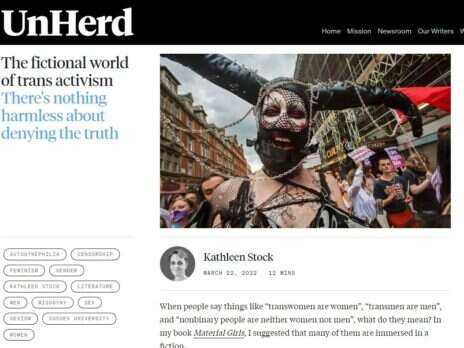
Facebook’s two-question survey to users asking whether a news source is trustworthy or not has been criticised for its reliance on the “wisdom of crowds”.
The social media giant announced its plan to launch the survey last week and put the decision on what is a trustworthy source in the hands of its community of users.
The survey questions, revealed by Buzzfeed this week, are as follows:
Do you recognize the following websites?
- Yes
- No
How much do you trust each of these domains?
- Entirely
- A lot
- Somewhat
- Barely
- Not at all
Press freedom campaign group Reporters without Borders (Reporters Sans Frontieres – RSF) has criticised Facebook over the changes.
The groups’ general secretary, Christophe Deloire, said: “Relying on the ‘wisdom of crowds’ to decide which news websites are trustworthy is illusory and can prove dangerous.
“You cannot use polling and belief as the basis for establishing facts. Journalism is an investigative process based on rigorous, fact-verification methods resulting in complete, reliable information that respects the truth.”
RSF also expressed scepticism about users being “objective judges” and concern about the survey potentially being manipulated by bad actors.
In announcing the new approach to trusted sources on Facebook last week, founder Mark Zuckerberg said in a blog post: “I’ve asked our product teams to make sure we prioritize news that is trustworthy, informative, and local.
“There’s too much sensationalism, misinformation and polarization in the world today. Social media enables people to spread information faster than ever before, and if we don’t specifically tackle these problems, then we end up amplifying them.
“That’s why it’s important that News Feed promotes high quality news that helps build a sense of common ground.”
Zuckerberg added that having the community of users determine which sources are “broadly trusted” would be the “most objective”.
Full Fact director Will Moy told Press Gazette he would welcome “more transparency” around the important changes, which will also see news content become less visible in the News Feed as part of a push for more “meaningful social interactions”.
Moy said: “Reputable surveys done by members of the British Polling Council publish details of timing, sample, methods, and questions used. We don’t have those here.
“Questions on trust will get different answers depending on what the people answering mean by ‘trust’.
“Do audiences trust outlets to be accurate – or do they trust them to be on their side? With a question so wide open to interpretation, Facebook will need to take care to avoid unintended consequences.”
Ipsos MORI chief executive Ben Page said on Twitter that the questions were not “especially biased” but added: “On trust you need to be specific – trust to do what…”
The trust survey has caused some to worry that smaller news publications would suffer as less survey respondents would recognise them and be able to define their trustworthiness.
In response to these fears, Facebook’s News Feed head Adam Mosseri wrote: “There are a lot of great niche specialist publications out there that only a small number of people know of, and this change won’t effect them one way or the other.”
He later explained that they would not be affected because “not enough people we survey will be familiar with small publishers for us to know if they’re trustworthy or not”.
Facebook has also recently revealed that it had made reporting “fake news” easier for users and that once its fact-checking partners had labelled a story as “false” it is able to “reduce further impressions” of the story on Facebook by 80 per cent.
Media mogul Rupert Murdoch has this week called on Facebook to pay “carriage fees” to trusted news sources.
Facebook declined to comment on criticism of its survey.
Picture: Reuters/Dado Ruvic
Email pged@pressgazette.co.uk to point out mistakes, provide story tips or send in a letter for publication on our "Letters Page" blog






